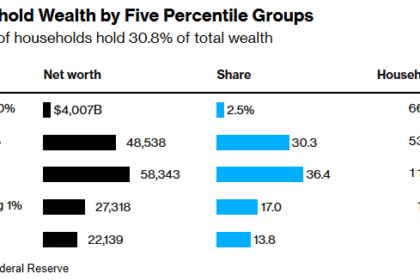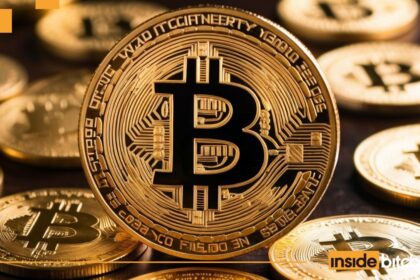Today in crypto, VanEck is launching its first tokenized fund backed by US Treasurys; Arizona Governor Katie Hobbs has vetoed bills aimed at creating a state Bitcoin reserve and enabling crypto payments; and Coinbase is poised to become the first crypto company added to the S&P 500 index.
VanEck to launch its first RWA tokenization fund
Investment firm VanEck is launching a tokenized real-world asset (RWA) fund that offers exposure to US Treasury bills, developed in partnership with tokenization platform Securitize. The initiative places VanEck among a growing number of traditional finance firms entering the RWA tokenization space.
The fund, called VBILL, will be initially available on Avalanche, BNB Chain, Ethereum and Solana blockchains, VanEck said in a May 13 statement. The fund’s minimum subscriptions start at $100,000 for investments running on Avalanche, BNB Chain, and Solana, while the minimum subscription on Ethereum is $1 million.
VanEck joins a burgeoning field of traditional financial firms that have launched RWA tokenized funds, with competitors including BlackRock and Franklin Templeton. In January, Apollo, an investment firm with $751 billion in assets under management, also launched a private credit tokenized fund.
With a market capitalization of $6.9 billion, US Treasurys are among the largest asset classes in tokenized funds, second only to private credit, according to data from RWA.xyz.
VanEck’s partner, Securitize, has tokenized over $3.9 billion in assets. In May 2024, it raised $47 million in a strategic funding round led by BlackRock.
Arizona governor kills two crypto bills, cracks down on Bitcoin ATMs
Arizona Governor Katie Hobbs vetoed two key cryptocurrency-related bills that aimed to expand the state’s involvement in digital assets while signing a strict regulatory measure targeting Bitcoin ATMs.
On May 12, Hobbs rejected Senate Bill 1373, which sought to establish a Digital Assets Strategic Reserve Fund. The fund would have allowed Arizona to hold crypto assets obtained through seizures or legislative allocations.
“Current volatility in cryptocurrency markets does not make a prudent fit for general fund dollars,” she stated in her veto letter. “I have already signed legislation this session which allows the state to utilize cryptocurrency without placing general fund dollars at risk,” she added.
That decision followed her veto of Senate Bill 1025 — the more ambitious “Arizona Strategic Bitcoin Reserve Act” — on May 3. It would have authorized up to 10% of the state’s treasury and retirement funds to be invested in Bitcoin and other digital assets.
According to data from bitcoinlaws.io, 26 US states have introduced strategic crypto reserve bills, with 18 of them currently active.
Hobbs also vetoed Senate Bill 1024, which would have permitted state agencies to accept cryptocurrency payments for taxes, fines and fees via approved service providers.
Coinbase to become the first crypto firm to join the S&P 500
Crypto exchange Coinbase Global (COIN) is set to join the Standard and Poor’s 500 (S&P 500) on May 19, becoming the first and currently only crypto firm to make it into the index.
The crypto exchange will replace Discover Financial Services (DFS), which was recently acquired by Capital One Financial Corp (COF), S&P Global said on May 12.
The S&P 500 is a stock market index that tracks the performance of 500 of the largest, publicly traded companies in the US, representing a broad measure of the overall US stock market.
Coinbase’s inclusion in the S&P 500 should increase demand for its stock because index funds and exchange-traded funds that track the S&P 500 must buy COIN shares to mirror the index.
COIN shares immediately rose 8.8% to $225.4 in after-hours trading following the announcement, Google Finance data shows. The company also finished the March 12 trading day up 4%, bringing its market cap to $52.8 billion.










